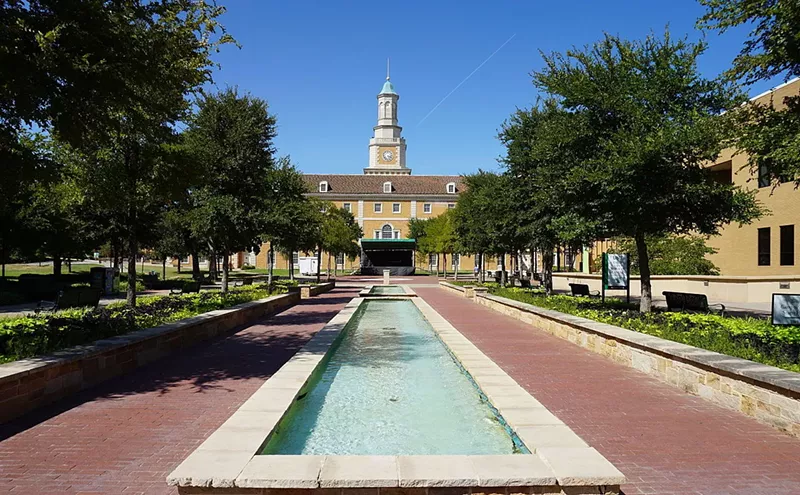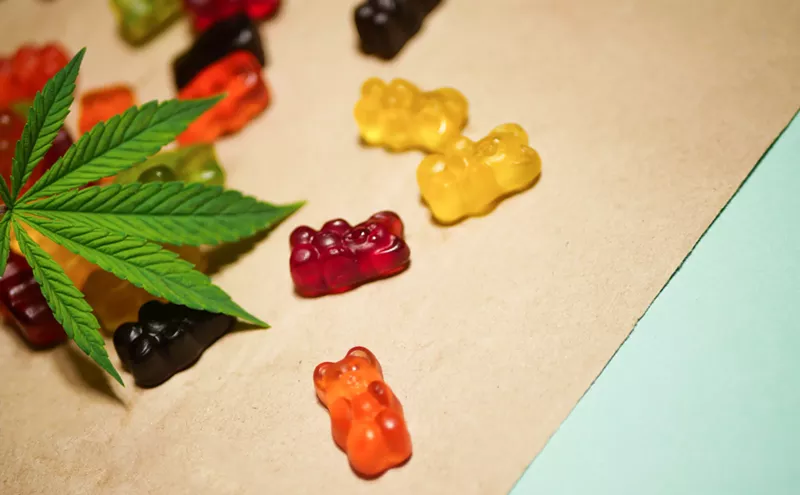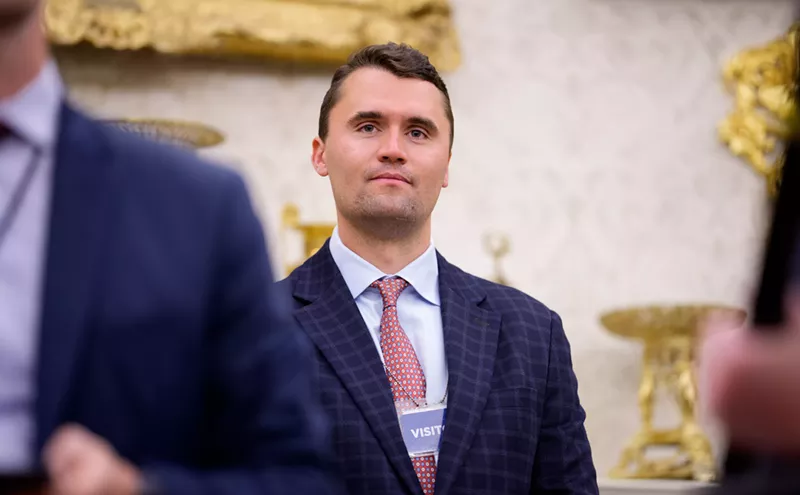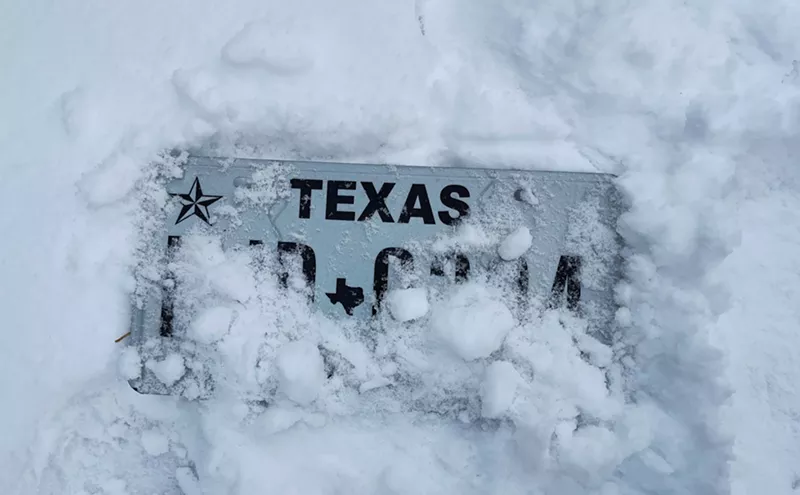The danger from the beginning was this: The jury would convict this cop at the bottom of the heap, and then everybody at Dallas City Hall would slap hands and say, "Well, we guess this gives us closure on the fake-drugs scandal." Instead, a federal jury last week found Dallas police Senior Corporal Mark DeLaPaz not guilty of charges that he had lied on arrest warrants in the fake-drugs case in 2001.
People on different sides of this thing agreed the verdict was the opposite of closure: It means rip it open.
In fake drugs, it turned out that Dallas police and the Dallas County district attorney had been sending people to prison on cocaine trafficking charges when in fact the defendants had been framed. Someone had planted big fat bags of ground-up gypsum on them. The gypsum was never properly tested.
DeLaPaz was one of the key detectives who helped make many of these cases, more than 80 of which had to be dismissed. Dozens of people had been falsely imprisoned, their lives mauled. A total of 21 lawsuits against the city are pending. Whoever was responsible for fake drugs did terrible damage to the lives of the victims, the credibility of local law enforcement and the honor of the city. But the jury reeled in its line, saw DeLaPaz on the hook and decided he wasn't a keeper.
There's some major fuzziness in the DeLaPaz acquittal. His very capable attorney, Paul Coggins, argued that DeLaPaz was an honest cop duped by paid confidential informants. According to this scenario, the confidential informants did the fake-dope planting in order to collect $275,000 in snitch fees over a period of months. The cops had no clue.
But there's a problem with that. DeLaPaz wasn't exactly accused of knowing the drugs were fake and not revealing it. That was not the lie alleged. DeLaPaz was accused of swearing he had been present and witnessed actual transactions the government said had never occurred. He was really accused of furthering the conspiracy to frame people by letting the confidential informants run wild and then later backing them up with official lies on documents.
During and immediately after the verdict last week, there were screwy signals from the jury. While they were deliberating, they sent out a note to the judge asking if they had to find DeLaPaz guilty if they believed he had lied. Nobody knows what the judge answered, but she probably told them to go back and re-read the charge and re-read her instructions.
After the verdict, a juror was quoted in The Dallas Morning News saying that even if DeLaPaz had lied in official police reports about the drug cases, "...it wasn't with some big evil intent to keep some innocent guy in jail."
So exactly where did the juror think Senior Corporal DeLaPaz was trying to send the innocent guys he was accused of lying about on police reports leading to the innocent guys' arrests, indictments, convictions and incarcerations? Sailing school in the Keys? I'd like to see that juror jerked up out of his life, taken from his family and business and shipped off to the Hotel Cornholia in Huntsville for several years, and then ask him for his thoughts on "evil intent."
But it's also possible the jury was just saying, "Not big enough." Maybe they didn't care if DeLaPaz had fudged the warrants. They wanted a bigger fish before they were willing to clean.
In fact, that notion was suggested to me without prompting by two interesting sources--Paul Coggins, who won the day in the DeLaPaz case, and Dallas County District Attorney Bill Hill, who got spattered by a lot of the early dirt in the fake-drugs saga.
Hill said, "I think it was a jury nullification kind of a deal," suggesting the jurors may have smelled the same rat everybody else did--that DeLaPaz was being fed to them as a scapegoat to protect higher-ups. Hill this week appointed a special prosecutor who will investigate that possibility.
Of course, Hill's agency was also culpable. He helped send people to prison on fake drug evidence, too. But Hill's reaction to the scandal was the opposite of the police chief's. Once Hill was convinced what had happened, he instituted aggressive reforms to keep it from happening again. Former police Chief Terrell Bolton denied, obfuscated and misrepresented to the bitter end. Not one damn thing has been done to this day to prevent it from happening again in the police department. So who looks like the author here?
Coggins argues that his client was strictly and totally innocent of the charges against him. But Coggins--former U.S. attorney for the Northern District of Texas, now in private practice--also says the jury didn't buy DeLaPaz as the archfiend of fake drugs. "I think the jury came out realizing that this was an effort to pin it on one guy or a couple of guys and then just say, 'Oh, well, we had a couple of bad cops,' and then wipe their hands and walk away from it."
Coggins has been in charge of complex prosecutions himself in corporate fraud, cyber-crime and other areas where the government's ducks must be lined up carefully to make charges stick. He said a lot of what he learned in preparing for this case--and a lot of what he thinks stuck with the jury--had to do with appalling lapses in training, oversight and overall command responsibility within the Dallas Police Department.
"We had bureaucratic indifference to what was happening to these people. There were people who either didn't know what was going on or didn't care to find out what was going on.
"And there were people who were happy to bask in the glory when it looked like this stuff was cocaine," he said. "As soon as it turned out to be fake drugs, they were all just spreading out, and there's one guy sitting at the defense table."
Coggins ticked off a list of procedures that should have been in place--training street cops to do field tests on drugs, keeping track of the money they pay to informants, knowing what the market rate should be for certain kinds of tips and so on. The general atmosphere of laxness and sloppiness, the promotion of people to command positions for which they had little or no experience, the entire culture and atmosphere within the department tended to leave the frontline cops unsupported and fending for themselves.
That didn't sit well with the jury, Coggins said, nor did the obvious callousness of the command staff.
"The police chief is having press conferences, and everybody is happy and jovial, and everybody's making these big cases, but they're not doing the little things to make sure that the cases were tight, like getting the lab report before they went to the grand jury."
I asked him about the attempt by former Chief Bolton and City Manager Ted Benavides, after the fake-drug mess came to light, to kill the police department's drug-testing contract with the Southwest Institute of Forensic Sciences, a highly respected laboratory associated with the University of Texas Southwestern Medical Center.
"That would have been an absolute disaster," he said. "If there's a hero in this whole thing, it's the folks out at SWIFS." He said the attempt to strip SWIFS of the drug-testing contract was a major clue to the real responsibility for fake drugs.
"I would shine the spotlight on the people who were on the top floor of the department and the decisions that were being made."
Hill said the same thing. He pointed out that Bolton at one point invited the U.S. Drug Enforcement Agency to perform a management review of procedures in the Dallas Police Department. That audit was completed and a report delivered to the chief, Hill said. But the report has never been made public, and Hill said he has not been provided a copy.
I called the office of acting Chief Randy Hampton to ask where the report was and when it might be released, but I did not receive a response.
It's absurd...no, wait, it's not absurd. It's obscene that anyone at City Hall should think a matter as ugly as this could end with show trials of a couple of detectives. Tony Garrett, former chairman of the Dallas Citizens Police Review Board, said at the end of the week, "In any other police department in any other city in America, heads would be rolling from the top floor to the bottom over a thing like this."
City Attorney Madeleine Johnson told a news conference last week she would see to it that a serious investigation was launched into fake drugs. But the first thing Johnson did the next Monday was help suppress a discussion of fake drugs by the city council's public safety committee. Her main interest is in protecting the city from lawsuits.
By appointing lawyer Dan Hagood as a special prosecutor, the district attorney has taken a major step toward real action. The city is still in the promising mode, and so far the promises look pretty iffy.
The problem with City Hall is that so many people on the staff, all the way from bottom to top, are potential targets of litigation. Will City Hall ever get done protecting its own rear end in time to do any real good? And by the way: Who protects you and me from City Hall?












